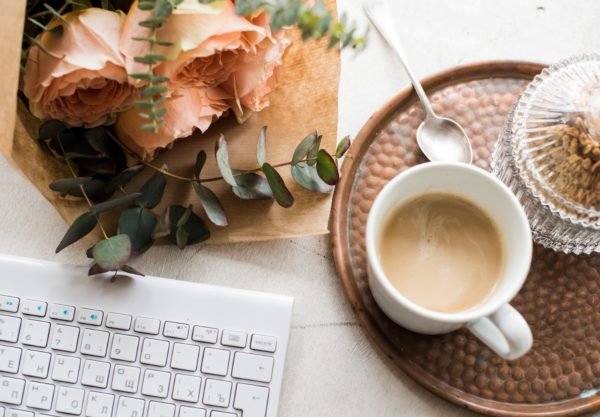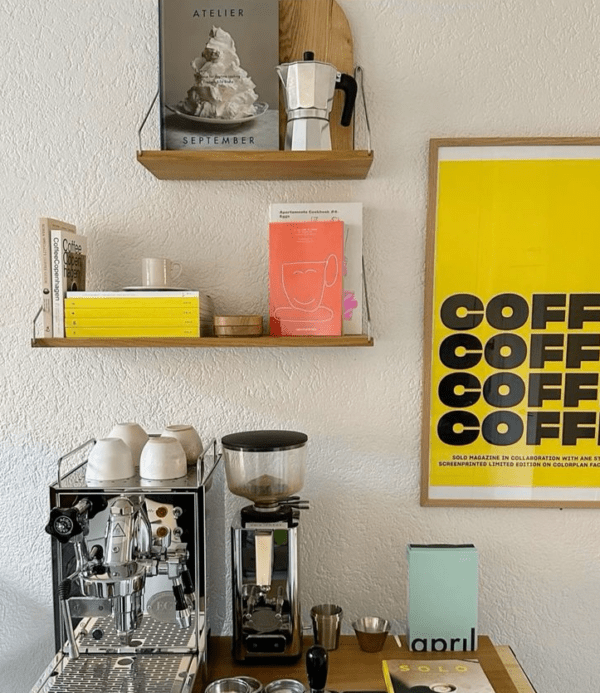
8 Ways to Relieve Stress and Anxiety from the Comfort of Your Own Room

April is Stress Awareness Month, and follows March which has been one of the most disruptive months in many of our lifetimes. It’s understandable if you’re feeling stressed, burnt out or anxious, and you need a way to minimise the noise.
We’re all cooped up inside for the next few weeks, and some of us might not have the luxury of a garden, or even a shared living space. So I thought I would share my ultimate tips for practising mindfulness, which really helps reduce stress, from the comfort of your own room.
Exercise
Moving can help us to get through those stress levels and boosts our endorphin levels, which are our body’s natural painkillers. Exercise isn’t used as a ploy for better mental health by personal trainers across the world for no reason. It immediately reduces levels of our stress hormones, such as adrenaline and cortisol.
Meditate
This is a time when many of us will have a lot of background noise in our mind. For many, mindfulness is more about losing things than gaining it. Reducing anxiety and stress levels, and helping to remove the noise and the compulsion for your mind to wander, meditation triggers your relaxation response.
Whether you source the help of an app such as Calm, follow a Youtube video or simply sit and focus on your breathing, meditation will help to restore your body to a calm state, something which cannot be underestimated right now. And it doesn’t need to be a long thing either – just a few minutes of meditation a day can help to ease anxiety and make you more resilient to stress.
Talk to friends
While we can’t go out and socialise in person, it’s easy to put off that Facetime or joining them on Houseparty if you’re feeling stressed. But ten minutes of catch up with your friends on video or just by calling them will bring back a sense of normality to your day. It gives you the chance to rant to somebody else, or laugh with somebody else.
Try and talk about something that’s not to do with coronavirus (although I’m not sure what we did speak about all those weeks ago?!). Just don’t block them out.
Think of it as an opportunity
This situation is not ideal for anyone, let’s be honest. But try and reframe your thinking from being stuck inside with nothing to do, to the opportunities you can create. There is absolutely nothing you can do right now about the situation (apart from staying indoors), so think of this time you have as a blessing.
Pick up a new ritual, learn how to plank, finally take this opportunity to go vegetarian without fear of what you’ll eat in a restaurant.
But also – don’t try and do too much too quickly. Just because we’re at home more, don’t feel like you need to do everything all of the lists are telling you that you can do with this time. Nobody is going to learn Italian, pick up knitting, colour code their book shelf and bake everyday. Small, baby steps are much more healthy.
The Pet Effect
If you have a pet, the human-animal bond can help to alleviate stress and anxiety. If you live with your family dog, try and make a conscious effort to volunteer to take it for walks. Pets are superheroes for helping anxiety – and if you’re feeling alone, they can help to reduce that.
Take time out of your work day to play with your pets. They might not be able to talk, but they’re intuitive, always available for a hug, distract you – and listen to your rants!
Messy room equals messy mind
We’re spending more time than ever in our rooms. Of course, we can be forgiven for some socks on the floor, but usually while we may leave half of the contents of our wardrobe on the floor and forget about it when we get to work, this isn’t the case anymore. If you have a messy home, and you’re spending all of your time in it, it can disrupt your thinking. Again, you don’t need to Marie Kondo your whole home – just take small steps to ensure the home stays organised.
Keep your routine
While many of us are working from home, it’s easy to not brush our hair, make our bed, or eat breakfast until 11:30am on the weekdays. But it’s important to try and maintain some sort of resemblance to your life before we all became stuck inside. It will help you to avoid negative thinking, and reduce the stark changes in your life.
Don’t work from your bed either – it’s tempting to stay in your pyjamas and remain bundled in blankets while working on that presentation – but it can massively confuse your brain, your mental health and your productivity.
When you’re in bed, your brain associates it with relaxing and the line between work and rest becomes muddled. You also don’t want to feel like you should be working on weekends – try and work in a place where you can get up and leave as soon as the clock hits 5pm. Also, working from your bed is terrible for your posture.
Switch off the news and negative Netflix
Watching too much of the news is not helpful for anyone. It ensures that COVID-19 stays front of mind, fueling anxiety and stress. Try and not check the news at all while you’re working – and stop those breaking news alerts. Chances are, if the news is that big, you’ll find out in the daily news briefings (all you need to watch) or a friend will text you.
Similarly, millions of us are flocking to Netflix right now to distract ourselves. But try not to watch something that may make your mental health even worse. Contagion has been in the top 10 Netflix watches for the last month or so, but if that’s not going to make your mood better. Focus on things that bring you joy. That doesn’t need to be a comedy, but anything you enjoy, whether that’s a thriller, action or drama.
By: Yen Goo, Owner at Paguro Upcycle















































